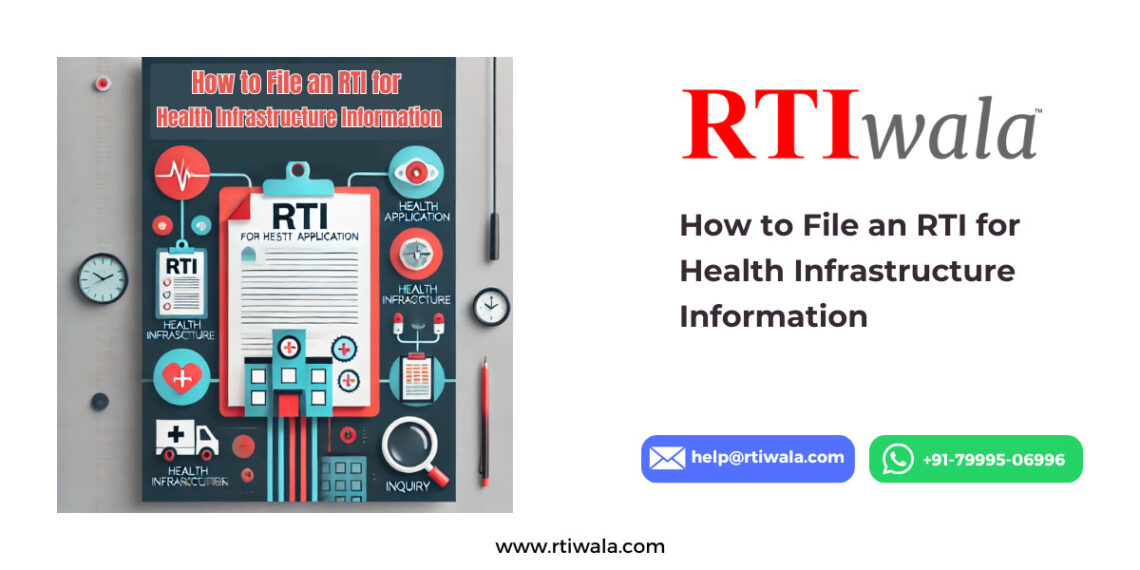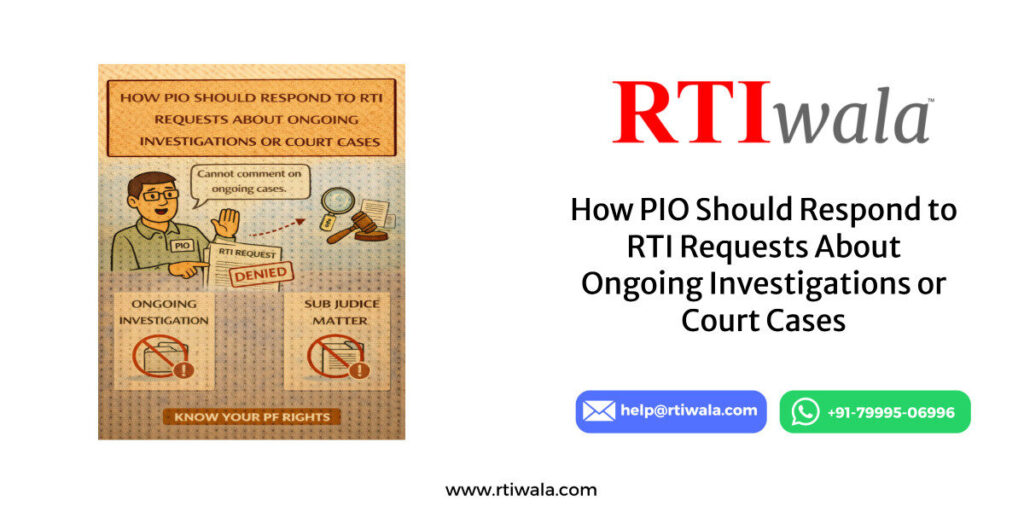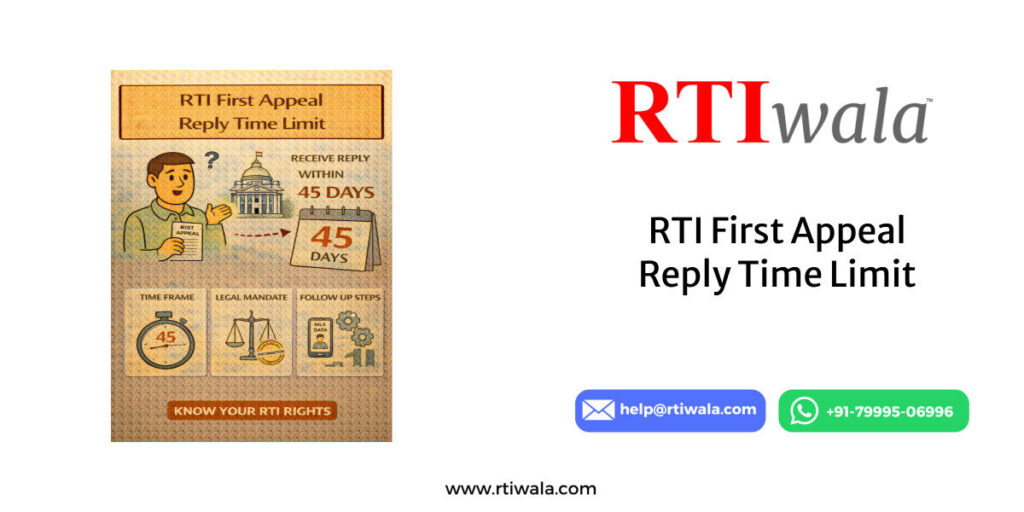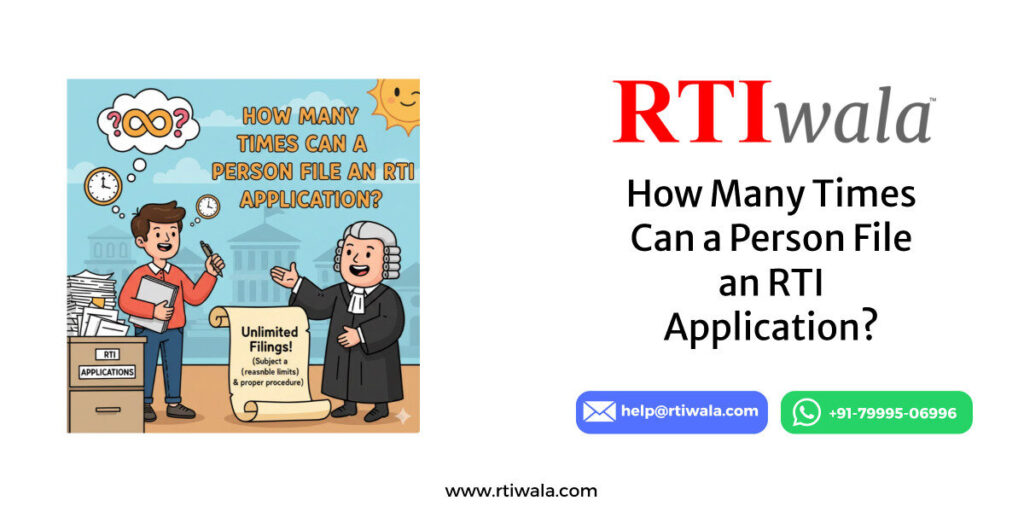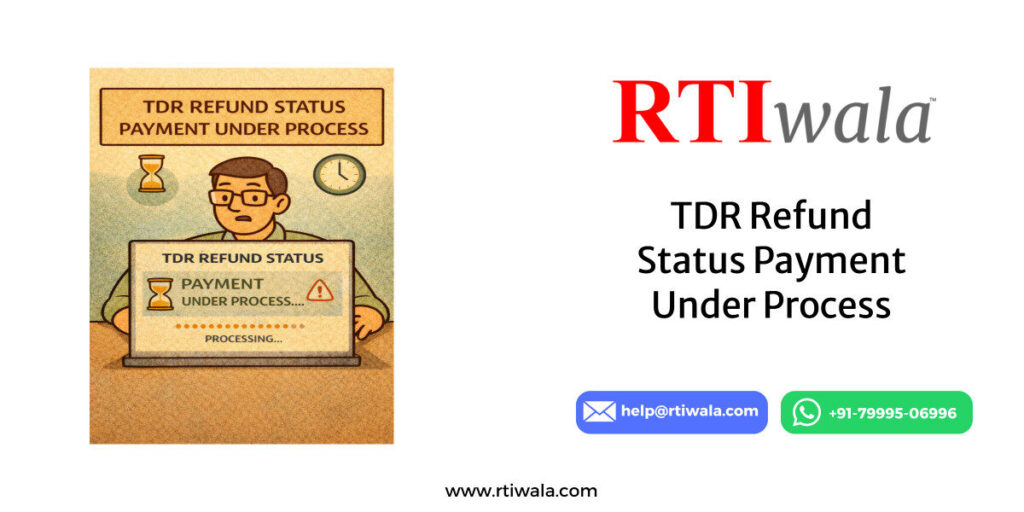The government’s efforts to upgrade health infrastructure are vital for ensuring quality healthcare for all. However, tracking the progress of these upgrades can be challenging due to the complexity and scale of the projects. The Right to Information (RTI) Act empowers citizens to access detailed information on such initiatives, promoting transparency and accountability. This article will guide you on how to use RTI to track the progress of government health infrastructure upgrades.
Table of Contents
- Importance of Health Infrastructure Upgrades
- Role of RTI in Monitoring Health Infrastructure
- Step-by-Step Guide to Filing an RTI for Health Infrastructure Information
- Challenges in Accessing Health Infrastructure Data
- Success Stories: RTI and Health Infrastructure Transparency
- How RTIwala Can Assist You
- FAQs
- Conclusion
Importance of Health Infrastructure Upgrades
Upgrading health infrastructure is crucial for:
- Improved Healthcare Access: Ensuring that medical facilities are available in rural and urban areas.
- Enhanced Quality of Care: Upgrading equipment and facilities to provide better patient care.
- Preparedness for Emergencies: Strengthening the health system to respond to pandemics, natural disasters, and other emergencies.
Role of RTI in Monitoring Health Infrastructure
The RTI Act allows citizens to request information related to government projects, including health infrastructure upgrades. Through RTI, you can access:
- Project Plans: Details of the infrastructure upgrade plans.
- Budget Allocations: Information on the funds allocated and spent on these upgrades.
- Progress Reports: Updates on the implementation status of the projects.
- Compliance Checks: Data on whether the upgrades meet the required standards.
Step-by-Step Guide to Filing an RTI for Health Infrastructure Information
- Identify the Public Authority: Determine which government department is responsible for the health infrastructure project you are interested in.
- Draft Your RTI Application: Write a clear application specifying the information you seek, such as project timelines, budget allocations, and progress reports.
- Submit the Application: Submit your RTI application online or offline, ensuring you include the necessary application fee.
- Follow Up: Track the status of your RTI request. If you don’t receive a response within 30 days, you can file an appeal.
Challenges in Accessing Health Infrastructure Data
Common Challenges:
- Bureaucratic Delays: Responses may be delayed due to administrative processes.
- Incomplete Information: The information provided may not cover all aspects of the inquiry.
Overcoming Challenges:
- Regular Follow-Up: Stay proactive in following up on your request.
- File an Appeal: If the response is unsatisfactory, file an appeal to request more detailed information.
Success Stories: RTI and Health Infrastructure Transparency
RTI has been used successfully to monitor health infrastructure projects. For example, an RTI application revealed delays in the construction of a major hospital, leading to public pressure that accelerated the project’s completion.
How RTIwala Can Assist You
Filing an RTI for health infrastructure information can be a complex process. RTIwala offers expert assistance in:
- Drafting Your Application: Helping you craft a precise and effective RTI request.
- Submission and Tracking: Ensuring that your application is submitted correctly and monitoring its progress.
- Expert Guidance: Providing support in overcoming challenges and filing appeals if needed.
For expert assistance with your RTI application, reach out to RTIwala today!
FAQs
Q1: What kind of health infrastructure information can I request through RTI?
You can request details about project plans, budget allocations, progress reports, and compliance with standards.
Q2: How long does it take to receive a response to an RTI request?
The public authority is required to respond within 30 days of receiving your RTI application.
Q3: What should I do if my RTI request is denied?
You can file an appeal with the first appellate authority if your request is denied or if the information provided is incomplete.
Q4: Can I use RTI to get information on private health infrastructure projects?
RTI is primarily for accessing information on government projects. However, if a private project involves public funds or government collaboration, you may request information.
Q5: How can RTIwala help with my RTI application for health infrastructure upgrades?
RTIwala offers assistance in drafting, submitting, and tracking your RTI application, ensuring you get the information you need effectively.
Conclusion
Tracking the progress of health infrastructure upgrades is essential for ensuring that public health systems are strengthened and that funds are used efficiently. By using RTI, you can access valuable information that promotes transparency and accountability in these projects. If you need assistance, RTIwala is here to help you navigate the RTI process smoothly.












































